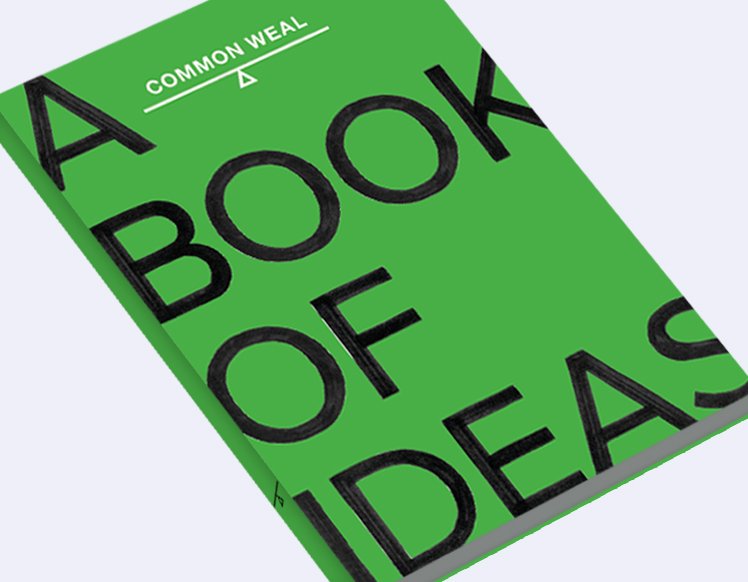 Please buy the book here.
Please buy the book here.
What could the 2016 Scottish Parliament do over its 5 year term using the powers it has (or is likely to have) to create an ‘all of us first’ society?
Part 1 of the book “how should we carry ourselves?” contains 5 chapters developing the ideas of putting all of us first, the tasks and the tools, defining the commons, sharing more to build more, and design for life.
The main part of the book is part 2 – what should we do? It covers building the commons, nothing about us without us, providing for Common Weal, in our hands, by our hands, putting all of us first, and a good life.
It addresses 101 key ideas covering tax, investment, the public realm, democracy, the economy, national infrastructure, resilience and self-reliance, equality and poverty, and quality of life, such as:
- Raise the top tax band (from £150,000) from 45p to 50p, raising approximately £20m as well as introducing a new 43p tax band at income over £50,000, raising approximately £180m.
- Abolish council tax and give local authorities the power to set the rates of a local income tax, a property tax and a land value tax (councils to raise £500m by setting a minimum rate but a high threshold (per unit value) which would target wealth and unproductive use of land).
- Cut the block grant to local government until it represents 50% of current spending and cut national income tax by exactly the same amount. Local government will then increase the rates of its local taxes to make up the difference, decentralising tax while keeping aggregate tax rates constant.
- Establish a Scottish National Investment Bank, secured with £2bn and capitalised it using annual borrowing powers of approximately £200m. A liquidity ratio of 10:1 would then mean the SNIB would be able to invest £20bn to the public and private sectors via a new mutual borrowing model.
- Create a parallel Scottish digital currency to inject £1 billion into the economy, putting £250 of additional, debt-free money into the hands of every Scottish citizen.
- Develop a municipal banking sector offering households and small businesses supportive, local banking.
- Create special purpose vehicles (such as national mutual companies) to invest in big national interventions and to work around the severe borrowing limits on Holyrood.
- Maintain all core public services in full public control.
- Create a public National Childcare Service, offering free national childcare to make careers for parents (in particular women) easier.
- Transform existing local authorities into regional councils and introduce a new layer of local councils.
- Democratise regional councils by requiring a full committee system open to the public.
- Develop an industrial policy to rebalance the economy and stimulate key Scottish industries.
- Create a National Housing Company which would borrow against rents to build a new generation of public rental houses in Scotland, renovate existing properties by borrowing against future savings in energy costs from better insulation, develop a “mortgage to rent” system to protect home owners in the event of unaffordable rises in mortgage costs when interest rates rise, high-quality disability access public housing.
- Create a National Energy Company which would borrow against future income from energy generation with the aim of putting all new energy generation in Scotland in collective ownership. The company should also create a manufacturing arm to build as much as possible of the technology in Scotland.
- Re-orientate planning policy towards public good and away from private profit.
- Increase the quality of all housebuilding.
- Create a National Housing and Transport Policy Academy to advise on ways to develop towns, cities and communities focused on good design and quality of life.
- Set out a national deconsumerisation strategy and increase participation in sport, arts, learning etc.
- Explore the possibility of devising a form of Citizen’s Income for artists.
- See criminal justice and policing as quality of life issues, rather than punishment and criminalisation.
- Put quality of life at the heart of education – aim for positive, happy development of pupils.
Yes Edinburgh West has a website, Facebook, Twitter, National Yes Registry and a Library of topics on Scottish Politics, including Independence.
